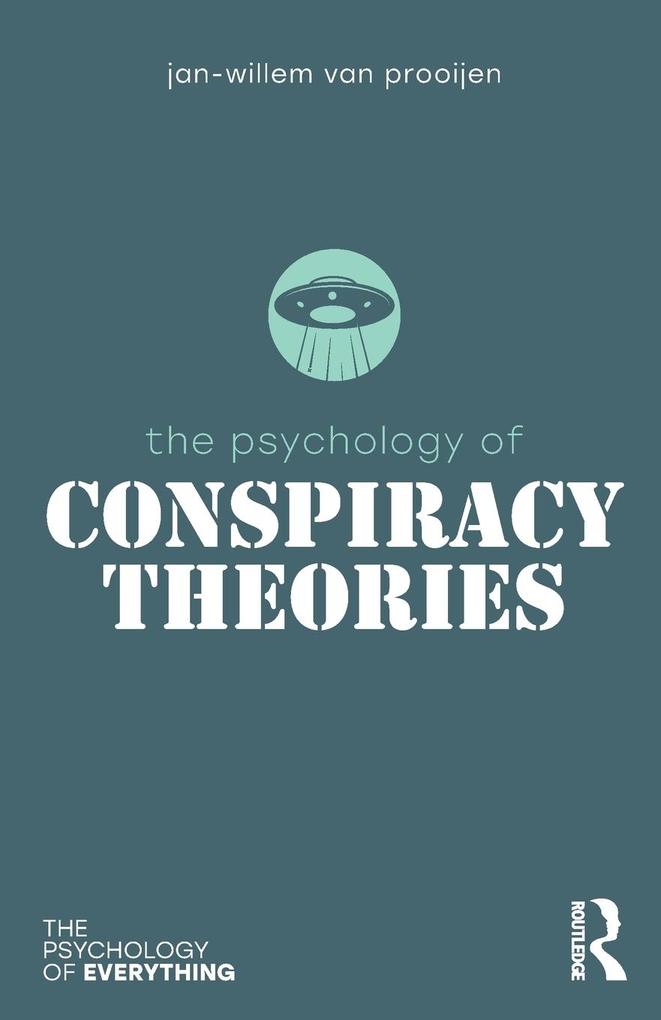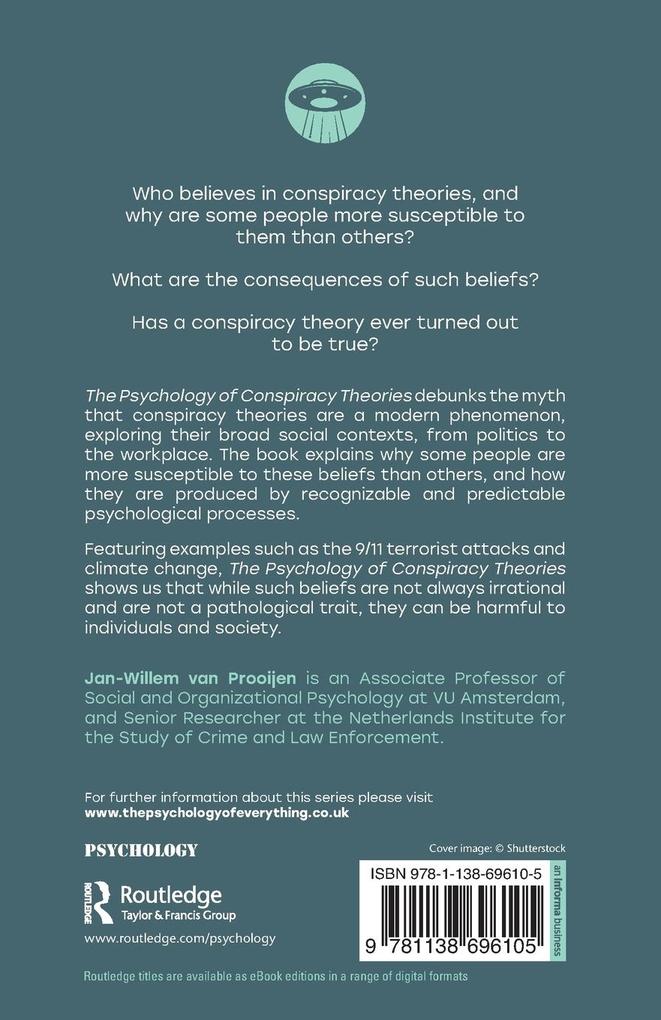
Zustellung: Sa, 23.08. - Mi, 27.08.
Versand in 5 Tagen
VersandkostenfreiBestellen & in Filiale abholen:
The Psychology of Conspiracy Theories presents an engaging introduction to the origins of widespread belief in conspiracy theories. Through a discussion of the history of conspiracy theories, the book debunks the myth that they are a modern phenomenon, exploring the broad contexts they can appear in from politics to the workplace and considering why some people are more susceptible to these beliefs than others.
Who believes in conspiracy theories, and why are some people more susceptible to them than others?
What are the consequences of such beliefs?
Has a conspiracy theory ever turned out to be true?
The Psychology of Conspiracy Theories debunks the myth that conspiracy theories are a modern phenomenon, exploring their broad social contexts, from politics to the workplace. The book explains why some people are more susceptible to these beliefs than others and how they are produced by recognizable and predictable psychological processes.
Featuring examples such as the 9/11 terrorist attacks and climate change, The Psychology of Conspiracy Theories shows us that while such beliefs are not always irrational and are not a pathological trait, they can be harmful to individuals and society.
Inhaltsverzeichnis
- Preface
Chapter 1 -Psychology of Conspiracy Theories
Chapter 2 - When do People Believe Conspiracy Theories?
Chapter 3 - The Architecture of Belief
Chapter 4 - The Social Roots of Conspiracy Theories
Chapter 5 - Conspiracy Theories and Ideology
Chapter 6 - Explaining and Reducing Conspiracy Theories
Further Reading
Notes
References
Mehr aus dieser Reihe
Produktdetails
Erscheinungsdatum
15. März 2018
Sprache
englisch
Untertitel
Sprache: Englisch.
Seitenanzahl
120
Reihe
The Psychology of Everything
Autor/Autorin
Jan-Willem Van Prooijen
Verlag/Hersteller
Produktart
kartoniert
Gewicht
137 g
Größe (L/B/H)
198/129/7 mm
ISBN
9781138696105
Entdecken Sie mehr
Bewertungen
0 Bewertungen
Es wurden noch keine Bewertungen abgegeben. Schreiben Sie die erste Bewertung zu "The Psychology of Conspiracy Theories" und helfen Sie damit anderen bei der Kaufentscheidung.


































